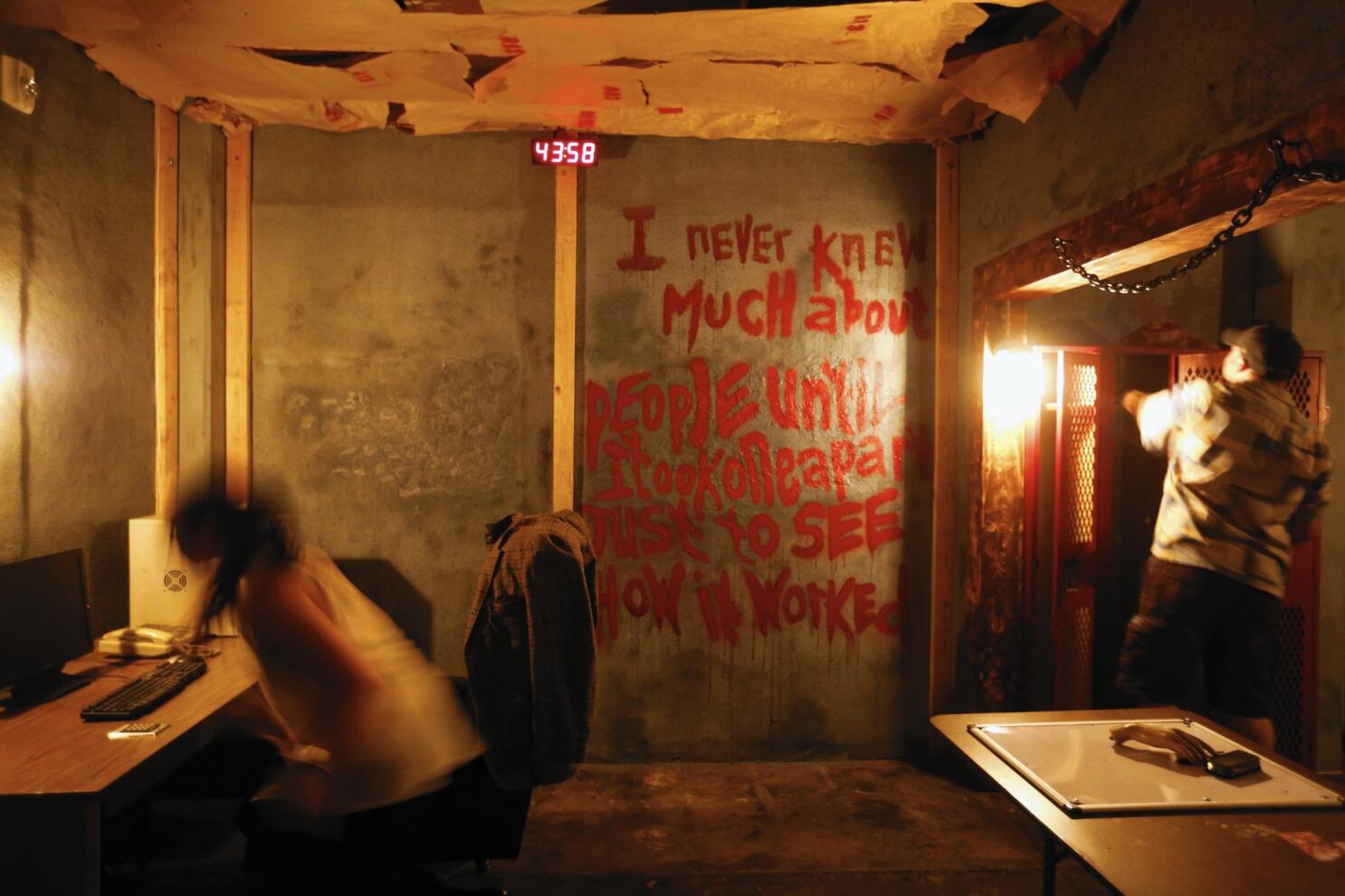Best Escape Room-- Test Your Skills and Fix the Enigma
Best Escape Room-- Test Your Skills and Fix the Enigma
Blog Article
Group Strategies: How to Collaborate Efficiently in an Escape Area
Navigating the complexities of a getaway space requires greater than plain excitement; it requires a well-coordinated approach grounded in clear communication, critical function assignments, and skilled time administration. Groups must proactively listen to every participant's insights, designate duties that straighten with specific strengths, and maintain normal check-ins to guarantee focus and protect against redundancy. By cultivating an environment that values cohesion and versatility, teams can significantly increase their effectiveness and success rates. The subtleties of these approaches can change the experience, yet just how specifically can they be carried out to take full advantage of the potential for success?
Establish Clear Interaction

To promote clear interaction, it is important to mark a central point of call for info circulation. This duty includes summarizing searchings for and proposed methods to make sure everyone continues to be on the very same page. Additionally, adopting an organized method to conversations can stop chaotic exchanges. For instance, short, concentrated updates from each staff member can maintain the group notified without frustrating them with information.

Appoint Functions Strategically
While clear interaction establishes the foundation for effective synergy, assigning roles tactically makes sure that each group member's toughness are used properly. In a getaway area scenario, the time-sensitive and complicated nature of challenges necessitates an efficient approach to task delegation. By recognizing and leveraging individual proficiencies, groups can enhance their analytic capacities and boost total performance.
First, assess the one-of-a-kind skills and characteristics of each participant. A person with an eager eye for detail may stand out in locating concealed objects, while a rational thinker can be much better suited to resolving puzzles. It's similarly crucial to have a leader who can manage progress, handle the timeline, and make decisive telephone calls when needed. This duty frequently needs solid business and social skills.
2nd, ensure that duties are adaptable and adaptable. As new obstacles arise, the group must have the ability to pivot, reapportioning tasks as needed. you could check here This versatility helps maintain energy and avoids bottlenecks that could take place due to stiff role assignments.
Inevitably, a tactical approach to duty assignment not only optimizes the strengths of each employee however additionally fosters a cohesive environment, driving the group towards a successful retreat.
Use Diverse Skills
Recognizing and using the diverse abilities within your team can substantially elevate your efficiency in an escape room. Each staff member brings one-of-a-kind staminas to the table, and efficiently leveraging these capacities can expedite problem-solving and improve general performance. For instance, a staff member with strong logical skills could succeed at figuring out complicated codes or patterns, while an additional with keen observational capacities may swiftly identify covert ideas that may forget.
Efficient communication is key to using these diverse abilities. Encourage staff member to voice their understandings and ideas immediately, guaranteeing that all possible remedies are considered. This inclusive technique fosters a vibrant atmosphere where creativity and critical reasoning can thrive. In addition, appointing tasks that align with each participant's strengths can avoid bottlenecks and ensure that development is continual.
Furthermore, diversity in abilities typically equates to variety in assuming designs, which is vital in an escape space setup. While some difficulties might require rational thinking and accuracy, others might gain from creative and side reasoning. By acknowledging and leveraging this diversity, groups can address a more comprehensive variety of challenges a lot more properly, thus enhancing their possibilities of a successful retreat.
Manage Time Efficiently

Recognize noticeable puzzles and separate jobs based on group members' staminas, ensuring that nobody is still. This practice can aid maintain the group focused and protect against time from sliding away undetected.
Furthermore, avoid one-track mind. If a challenge is taking too long, revolve employee or move on to an additional obstacle, returning later on with fresh perspectives. Communication is vital-- maintain everybody updated on addressed challenges and remaining tasks to stay clear of repetitive initiatives.
Lastly, utilize any type of tips or clues moderately however strategically - best escape room. Knowing when to request aid can conserve beneficial time. By adhering to these time management principles, teams can considerably boost their opportunities of a successful and satisfying escape space experience
Debrief and Mirror
Representation is an essential aspect of group advancement and renovation in the context of getaway spaces. When the obstacle is completed, whether effectively or not, it is essential for the team to take part in an organized debriefing session. This process enables staff member to analyze their efficiency, identify strengths, and pinpoint locations for improvement.
Start the debrief by reviewing what went these details well. Highlight details continue reading this instances of efficient interaction, analytic, and cooperation. Recognizing these favorable behaviors enhances them and encourages their repetition in future obstacles.
Following, attend to the barriers encountered. Discuss moments of confusion, miscommunication, or ineffective strategies. Urge an open and useful discussion where employee can share their viewpoints without fear of objection. This promotes a society of continual improvement and learning.
Conclusion
To conclude, effective cooperation in a getaway area is based upon clear interaction, calculated function tasks, the efficient use of diverse skills, and proficient time monitoring. Normal check-ins and structured debriefings are essential for maintaining focus and fostering continual improvement. By producing a cohesive and flexible group atmosphere, the probability of efficiently resolving puzzles and achieving the goal of running away the area is considerably boosted. This method not only makes certain success however additionally promotes cumulative growth and understanding.
Report this page